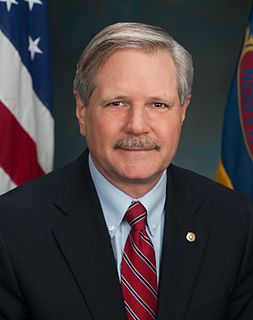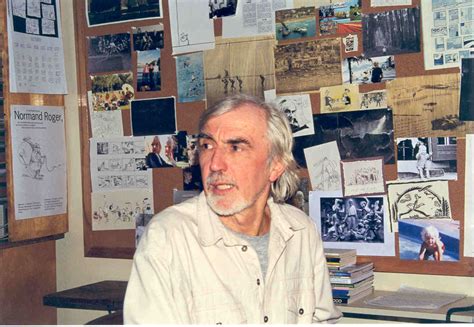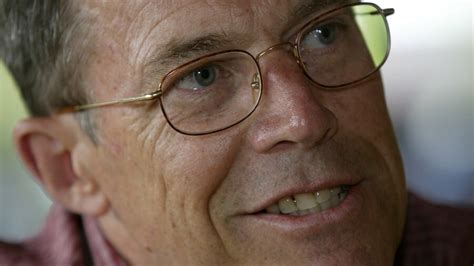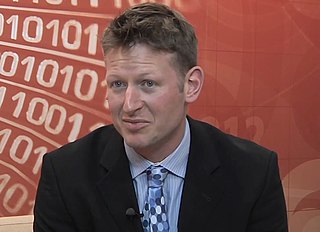Top 1200 Carbon Dioxide Emissions Quotes & Sayings - Page 4
Explore popular Carbon Dioxide Emissions quotes.
Last updated on April 20, 2025.
By enriching the carbon-dioxide content of the atmosphere from its impoverished pre-industrial levels, human beings have increased the productivity of the entire biosphere - so much so that roughly one out of every seven living things on the planet owes its existence to the marvelous improvement in nature that humans have effected.
When whales die, their bodies sink to the bottom of the ocean and over time become part of the marine sediment layer, where they can sequester the carbon dioxide they have accumulated during their life span, an average of 33 tons for a great whale species, keeping it out of the atmosphere for hundreds or thousands of years.
Is the warming unprecedented? Probably not. There is abundant historical and proxy evidence for both hotter and cooler periods in human history. Is it our fault? Again, maybe. The correlation of increasing warmth with increasing carbon dioxide concentrations is particularly weak; that with solar energy and with ocean movements is much stronger.
We need to be realistic. There is very little we can do now to stop the ice from disappearing from the North Pole in the summer. And we probably cannot prevent the melting of the permafrost and the resulting release of methane. In addition, I fear that we may be too late to help the oceans maintain their ability to absorb carbon dioxide.
I drove an electric car for seven years because of its advanced technology, not because I have any concerns about energy resources. I have none at all. And when environmentalists say that global warming is dangerous, unprecedented and that we'll have a tipping point for atmospheric carbon dioxide, it's just nonsense.
Soils could also be giving up their carbon stores: evidence emerged in 2005 that a vast expanse of western Siberia was undergoing an unprecedented thaw. The region, the largest frozen peat bog in the world, had begun to melt for the first time since it formed 11,000 years ago. Scientists believe the bog could begin to release billions of tonnes of methane locked up in the soils, a greenhouse gas 20 times more potent than carbon dioxide. The World Meteorological Organisation recently reported the largest annual rise of methane levels in the atmosphere for a decade.
Our early 21st century civilization is in trouble. We need not go beyond the world food economy to see this. Over the last few decades we have created a food production bubble-one based on environmental trends that cannot be sustained, including overpumping aquifers, overplowing land, and overloading the atmosphere with carbon dioxide.
The buckyball, with sixty carbon atoms, is the most symmetrical form the carbon atom can take. Carbon in its nature has a genius for assembling into buckyballs. The perfect nanotube, that is, the nanotube that the carbon atom naturally wants to make and makes most often, is exactly large enough that one buckyball can roll right down the center.
Carbon dioxide pollution is transforming the chemistry of the ocean, rapidly making the water more acidic. In decades, rising ocean acidity may challenge life on a scale that has not occurred for tens of millions of years. So we confront an urgent choice: to move beyond fossil fuels or to risk turning the ocean into a sea of weeds.
Air is one we hold in common; it has a limited carrying capacity for pollutants and that's being used up by those who pollute the atmosphere. So we have to stop that externality. We would never allow a utility to put their coal slag in a dump truck and back it up to the city park and dump it in unlimited amounts for free. But that is exactly what we do with carbon dioxide and methane.
Washington bureaucrats have classified the very air we exhale as a pollutant and have gone unchallenged in this incredible assertion. The logical consequence is that there will come a time when we will have to buy a government permit just to emit carbon dioxide into the atmosphere from our own lungs!
We can look back through ice-core data and see over 800,000 years, relationships between carbon dioxide and the temperature of the world. So those people who deny the importance of climate change are just wasting their time. They're also being diversionary because if we don't act the risks are enormous.
In recent years, America's wealthiest man has begun to tackle energy issues in a major way, investing millions in everything from high-capacity batteries to machines that can scrub carbon dioxide out of the air. With a personal fortune of $50 billion, Gates has the resources to give his favorite solutions a major boost.
The burning of fossil fuels has altered the amount of carbon dioxide in the atmosphere so rapidly and so abundantly that now, we are driving not just the warming trend, not just the sea level rise that is a consequence of the warming trend that is melting polar ice and alpine ice, but also [ocean acidification].
The Arctic is a place that historically, during all preceding human history, has largely been an icy realm with an impact on ocean currents. That, in turn, influences the temperature of the planet. The Arctic is now vulnerable because of the excess carbon dioxide in the atmosphere, with a rate of melting that is stunning.
1.5 billion people lack proper access to electricity. Many buy kerosene, which can cost 30 percent of their income. It sends millions of metric tons of carbon dioxide into the atmosphere every year. And often the lamp will fall over and catch the house on fire. So mothers hate it, but it's their only option.
It's an appreciation for life generally, every bit of life, the smallest creature that lives in the intestines of termites that make termite life possible - to the leaves that turn out oxygen and grab carbon dioxide and with water make simple sugars that feed much of the world. I mean, these are everyday miracles.
No chemical compound in the atmosphere has a worse reputation than CO2, thanks to the single-minded demonization of this natural and essential atmospheric gas by advocates of government control and energy production. The incredible list of supposed horrors that increasing carbon dioxide will bring the world is pure belief disguised as science.
There is universal consensus among experts that the earth's atmosphere is heating up - and that we are responsible for it by putting carbon dioxide in the atmosphere. We also know that the consequences of global warming are catastrophic. But how do we make sure that all countries reduce greenhouse gases?
CO2 is a minor player in the total system, and human CO2 emissions are insignificant compared to total natural greenhouse gas emissions. Therefore, lowering human CO2 emissions will have no measurable effect on climate, and continued CO2 emissions will have little or no effect on future temperature....While controlling CO2 emissions from burning fossil fuels may have some beneficial effects on air quality, it will have no measurable effect on climate, but great detrimental effects on the economy and our standard of living.





















































